- Clone
- 3B3C32 (See other available formats)
- Regulatory Status
- RUO
- Other Names
- Apolipoprotein E, ApoE
- Isotype
- Rat IgG2a, κ
- Ave. Rating
- Submit a Review
- Product Citations
- publications
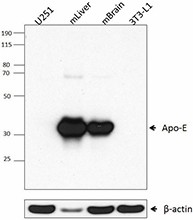
-
Total cell lysates (15 µg protein) from U251, mouse liver, mouse brain and 3T3-L1 were resolved by 4-12% Bis-tris gel electrophoresis, transferred to nitrocellulose, and probed with anti-Apo-E Antibody (clone 3B3C32). Proteins were visualized using a goat anti-rat IgG secondary antibody conjugated to HRP and chemiluminescence detection. Purified anti-β-actin antibody was used as a loading control.
| Cat # | Size | Price | Quantity Check Availability | Save | ||
|---|---|---|---|---|---|---|
| 674802 | 100 µg | 212€ | ||||
Apo-E is a class of apolipoprotein primarily synthesized in the liver, but is also found in other tissues such as brain, kidneys, and spleen. Apo-E is a protein component of serum chylomicron and lipoprotein particles, playing essential roles in cholesterol transportation, homeostasis, and metabolism. The expression of Apo-E is induced by cholesterol-rich diets and hyperlipoproteinemia. In the central nervous system, Apo-E is produced by astrocytes and microglia. The Apo-E-containing lipoprotein particles play important functions in brain injury repair, neurogenesis, and synaptic plasticity. Apo-E has been found to be involved in the regulation of amyloid-β aggregation and clearance. Genetic polymorphisms of Apo-E are associated with neuron degenerative disorders including Alzheimer's disease.
Product DetailsProduct Details
- Verified Reactivity
- Mouse
- Antibody Type
- Monoclonal
- Host Species
- Rat
- Immunogen
- Full length mouse Apo-E recombinant protein expressed in E. coli.
- Formulation
- Phosphate-buffered solution, pH 7.2, containing 0.09% sodium azide.
- Preparation
- The antibody was purified by affinity chromatography.
- Concentration
- 0.5 mg/ml
- Storage & Handling
- The antibody solution should be stored undiluted between 2°C and 8°C.
- Application
-
WB - Quality tested
- Recommended Usage
-
Each lot of this antibody is quality control tested by Western blotting. For Western blotting, the suggested use of this reagent is 0.5 - 2.5 µg per ml. It is recommended that the reagent be titrated for optimal performance for each application.
- Product Citations
-
- RRID
-
AB_2565426 (BioLegend Cat. No. 674802)
Antigen Details
- Structure
- 293 amino acids, predicted molecular weight of 34 kD (mature form), and contains one LDL receptor binding domain and two heparin binding regions.
- Function
- Apo-E is a component of serum chylomicron, VLDL, and HDL particles, and mediates lipid metabolism and memory formation.
- Interaction
- SET, KCNMA1, SAA, and PRNP.
- Biology Area
- Cell Biology, Neurodegeneration, Neuroscience, Protein Trafficking and Clearance
- Antigen References
-
1. Hayes EM, et al. 2014. Front Immunol. 5:537.
2. Kim J, et al. 2014. Mol. Cells 37:767.
3. Verghese PB, et al. 2013. Proc. Natl. Acad. Sci. USA 110:E1807.
4. Mahley RW, et al. 2012. Neuron 76:871.
5. Holtzman DM, et al. 2012. Cold Spring Harb. Perspect. Med. 2:a006312.
6. Zhang HL, et al. 2010. Clin. Dev. Immunol. 2010:186813. - Gene ID
- 11816 View all products for this Gene ID
- UniProt
- View information about Apo E on UniProt.org
Related Pages & Pathways
Pages
Related FAQs
Other Formats
View All Apo-E Reagents Request Custom Conjugation| Description | Clone | Applications |
|---|---|---|
| Purified anti-Apo E | 3B3C32 | WB |
Customers Also Purchased
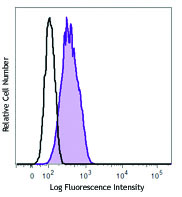
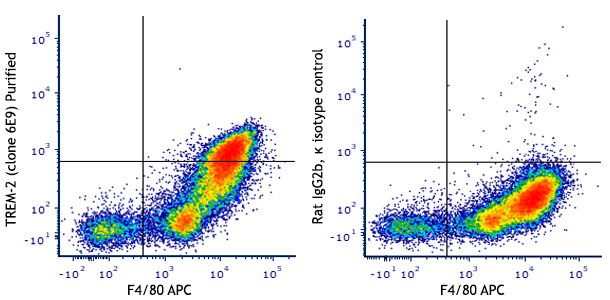
Compare Data Across All Formats
This data display is provided for general comparisons between formats.
Your actual data may vary due to variations in samples, target cells, instruments and their settings, staining conditions, and other factors.
If you need assistance with selecting the best format contact our expert technical support team.
-
Purified anti-Apo E
Total cell lysates (15 µg protein) from U251, mouse liver, m...
 Login / Register
Login / Register 





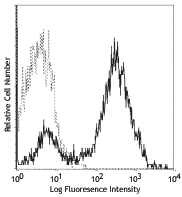
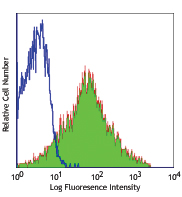
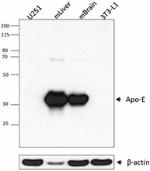



Follow Us